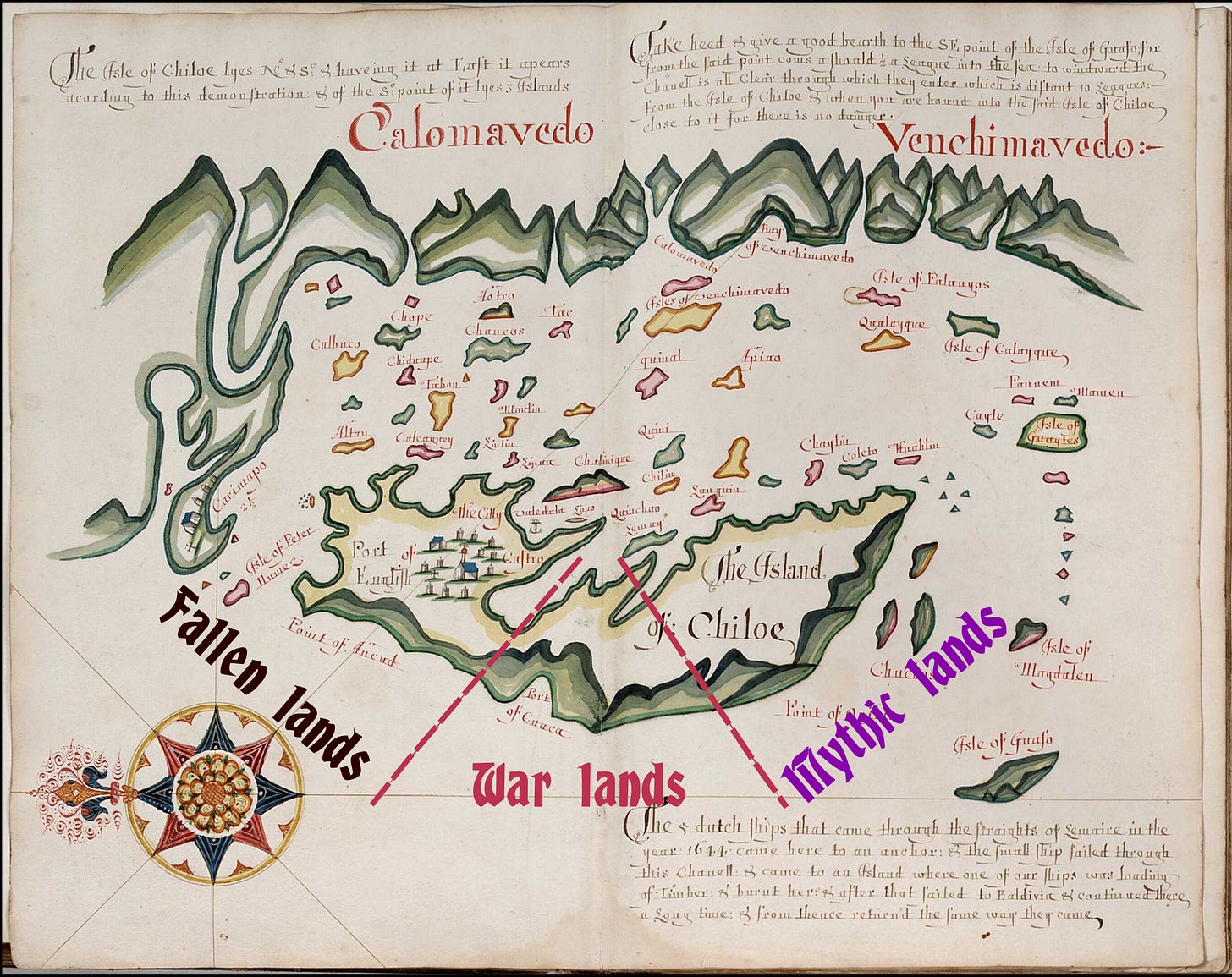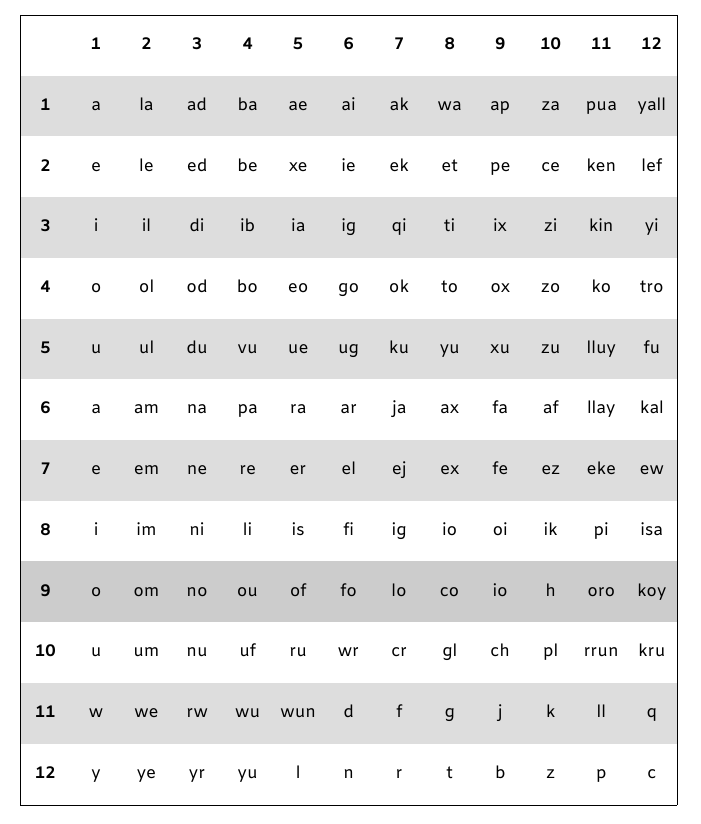No peace for the heathen — Moving towns #1: Sledging villages and what inspired them.
Game Design Log #18
One thing I was very interested in including into the world of this OSR/NSR game I’m creating was a fantasy counterpart to a particular tradition from Chiloe, one that had captured my imagination since I was a child: the “minga”.
The word minga comes from the quechua minccacuni meaning “asking for help by promising something” and it’s a concept used to describe the tradition of communal work, typically used in the rural areas of different cultures of South America. These communal projects can include building a house, harvesting, or any kind of labour that can help the community or some person, or group of people, belonging to the community. They are usually unsalaried, and food and drink are shared at the end as a gesture of gratitude.
In Chiloe, this word is used to describe the particular tradition of moving a home from one location of the island to another, by sliding the house over long wooden logs, while being pulled by oxen and the people of the community.
In the world of Isla Grande, the setting for “No Peace for the Heathen”, I expanded this concept of moving houses to entire towns, and gave them the name of sledging villages.
Sledging villages — Mythic Lands
Towns of your people, that follow the weather cycles of the land. They stay for the most welcoming part of the cycle at the west of Isla Grande, at the coast of the outer sea.
When the weather starts to get unbearably stormy and cold, they move toward the interior of the land, or to places enclosed by walls of trees. Entire towns, carried by their dwellers over wooden beams used as sleds, move through the land in this way.
Generating the name of a Sledging village
To choose a name for a sledging village, use the following table to translate it to the pious script (language of Conquistadors and Inquisitors) by rolling 1d12 for the column and then 1d4 for the row, doing this one to three times should be enough to create a name for a village.
If the same letter is paired with itself, it can be reduced to one.
If too many consonants are clustered, and you need vocals, put an O or E in between them.
If too many vocals are clustered, put a KEN or LEF in between them.
As villages are less numerous than people, and places in a same region do not repeat their names, whenever you create a name with this table, erase one or two of the entries you used, so names of villages are less similar between each other.
If you desire, you can write a new entry corresponding to those you erase in the empty colons.
Generating a Sledging village
Roll a d12 for each column and combine the results to generate the sledging village.

Who lives in the Sledging village?
Roll a 2d6 (d6d6) for each column to generate a villager of the sledging village.

Names of those who live in the Sledging village
Isla Grande is the point of convergence of different cultures that developed far apart for a long time, which gave rise to a stunning number of different family of languages. For this reason, the names of your people are very diverse and rich, being easy to find names that are very singular and never to be found again used by other inhabitants of Isla Grande. Names are related to the destiny of a person, and they have no gender.
Names come from the sound of sea and wind caressing the land, from animals calls, and from the poetic rolling on the tongue of the sound of the thirty and more languages that your people speak on Isla Grande.
So if you want to choose a name, you can get really creative or use the following table to translate it to the pious script by rolling 1d12 for the column and then 1d12 for the row. Doing this two to five times should be enough to create a name or surname. If the same letter is paired with itself it can be reduced to one.
If too many consonants are paired, and you need vocals, put an A or E in between them.
If too many vocals are together, put a K or F in between them.
Here are some pre-generated examples, you can roll 2d6 (d6d6) in this table instead of generating the name from scratch.
So this is it for today.
I’m still working on the game, and simultaneously I’m deciding whether to set up a small recording station because I’m tempted to record a “how to play” for Up is Out (my one-page Solo Co-op TTRPG). This will take time because I have never recorded anything, so surely, if I end up going through with it, it will be something with a very basic format.
Regarding my secret project, well, it has changed direction, which has pushed me to reorganize my year and the schedule of my projects, but everything for the better!
Next time I will show you the colonist’s take on moving towns; holy wheeled towns, and how to use them to create sites of adventures.







